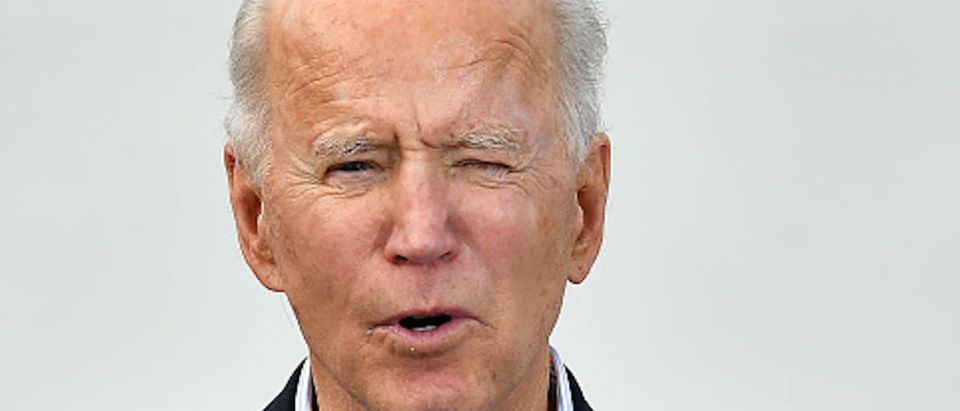It’s scandal time. Joe Biden appears to be failing. Almost everyone sees that. Republicans saw it during the campaign and commented on Biden’s “basement campaign” strategy — and he went 42 days without a press conference, as president! Democrats saw it too, of course, but said nothing. That may turn out to be the biggest fraud ever perpetrated on the American people: Vote for Biden, but get Harris.
Did the Democrats plan this from way back? That possibility was raised by this column last March.
Can you imagine nominating and campaigning for Woodrow Wilson after he’d had his stroke? That’s essentially what the Democrat Party did by nominating and supporting Joe Biden.
Donald Trump’s name for Biden was “Sleepy Joe.” But if sleepiness were the real problem with Biden, it wouldn’t matter any more than the listlessness of “low-energy” Jeb Bush. Bush may not have been your choice for president, but he certainly would have been competent.
Not so Joe Biden. He is failing, and at some point, and perhaps soon (and certainly before the next Congress convenes, by which time Democrats may have lost the House), no cover-up will suffice: everyone will see it. Then it will be closing time for the Biden presidency.
Then what?
Biden will be pressured to resign, encouraged perhaps by his doctor, ”Dr.” Jill Biden. He could wait until his cabinet removes him in accordance with the Twenty-Fifth Amendment, but it’s not likely his “doctor” will allow that indignity. She’ll make him resign.
Then what?
Then Vice President Harris will become the president.
Then what?
Then President Harris will, pursuant to the Twenty-Fifth Amendment, nominate someone to become the new vice president.
Then what?
Then, pursuant to the 25th Amendment, both houses of Congress must approve the nomination. That’s not a problem in the House of Representatives, where the Democrats have a (slim) majority (which they may well lose in the 2022 elections).
But what about the Senate, where there’s an equal number of Republicans and Democrats, and where the vote could very likely be tied?
No problem. The vice president will cast a tie-breaking vote.
But wait a minute: there is a problem. At that point, there’ll be no vice president.
Then what happens?
Who knows?
Seeing the problem, the Democrat president might nominate a moderate Democrat who could get the approval of at least one Republican — which is to say, not a Merrick Garland. Garland said (in public and on the record) that a central problem facing this country is domestic terrorism. Rioting, looting, burning and assaulting (the MO for Black Lives Matter folk) is, according to Garland, domestic terrorism only if it’s done during the day, not at night.
An alternative is to let the office stay vacant. If President Harris were to die or be removed, the Speaker of the House of Representatives would then become president.
Why do we need a vice president? Why would Republicans want to elevate some woke Democrat who thinks a handful of white supremacists are the central danger to America, a woke Democrat who might then be more able to campaign against them in 2024?
Of course, some Republican is likely to mess things up. James Burnham was a founding editor of William F. Buckley’s National Review. He wrote ten “laws,” known as “Burnham’s Laws.” Number 6 was: “In every project there’s a Schlamm.” It was developed after National Review’s experience with Willi Schlamm, an early editor of the magazine, who was . . . impossible to deal with, and who finally had to be let over the side. Every organization has one.
Who’s the Willi Schlamm in the Senate Republican Conference? Mitt Romney? Lisa Murkowski? We may find out.
In the meantime, as Joe Biden mumbles and stumbles in full public view, we should contemplate the perfidy of the party and their media allies that foisted this failing old man on our country. That surely is the scandal of this century.
Daniel Oliver is Chairman of the Board of the Education and Research Institute and a Director of Pacific Research Institute for Public Policy in San Francisco. In addition to serving as Chairman of the Federal Trade Commission under President Reagan, he was Executive Editor and subsequently Chairman of the Board of William F. Buckley Jr.’s National Review.












